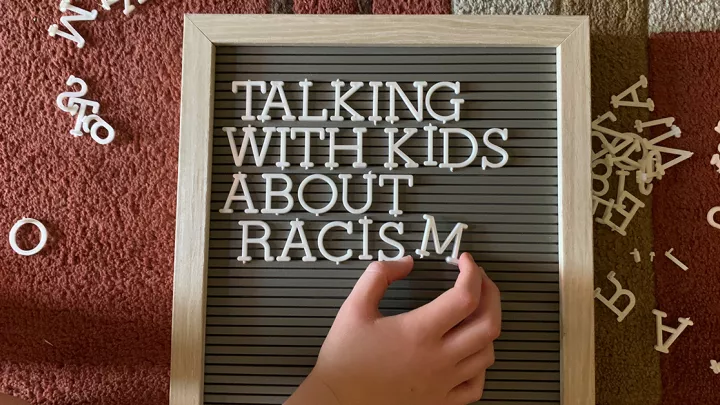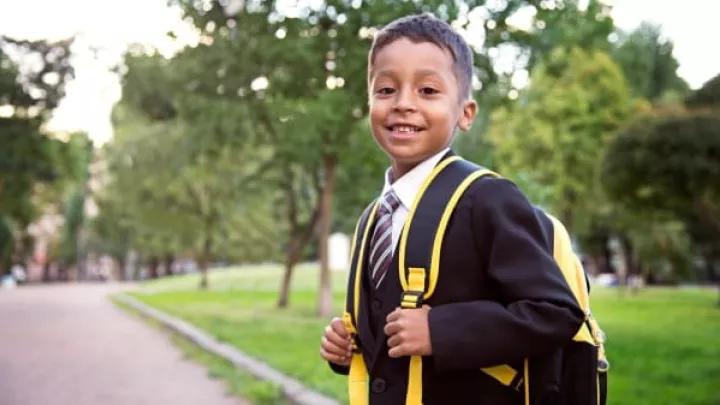
Bully-Proof Vest

Bullying can be a daily occurrence for some children, making them fearful and anxious about going to school. They may go to great lengths to avoid going to school, including feigning illness or ditching school, and never even tell their parents that the bullying is occurring. Parents who feel they have healthy and open communication with their child are often shocked to find out that he or she is being bullied.
Why do children choose to hide something so severe from their parents? There are several reasons. One of the most common reasons children give is that they are afraid of being labeled as “snitches” and being targeted even more. They are also worried that their parents will try to fix the problem by going to their school, confronting the bully or contacting his/her parents, all of which will be embarrassing, draw more attention to them, and make things worse.
Other reasons that a child may choose not to tell his or her parents are less obvious, but important for parents to recognize:
- Children may be embarrassed for their parents, or even siblings, to know that they are not popular.
- Depending on family and cultural norms, children may fear ridicule and humiliation at home.
- If parents are very nurturing, accepting and supportive, children may not want to disappoint or worry them.
- If parents are more harsh and critical, children may be afraid that parents will be mad at them for “allowing” themselves to be bullied, and even blame or punish them.
- Children may seek to attempt conflict resolution themselves, and by parents getting involved, they will be deprived of this opportunity.
- Alternately, sometimes a child may wish to leave the bullying at school, and maintain home as a safe place where he or she does not have to talk about or be reminded of the bullying. By telling parents, children are bringing this terrible experience home, and opening themselves up to being questioned and forced to talk about it during the times where they wish to just forget about it.
So, what are children and families to do? Children are often told to ignore the bully or walk away. Unfortunately, recent research has not supported that this strategy is consistently highly effective, and many children will share their experience that ignoring doesn’t work. Some parents feel that they have to be at the school every day to protect their children, which is not a good solution. Here are some things parents can do to help prepare and protect their children from bullies.
- Set the stage for open dialogue at home with your children. Communicate to them that they can talk to you about anything, and show them that they can trust you to listen.
- Remain calm. If you do learn from your child or someone else that your child is being bullied, do not over react. Problem solve with your child, ask them what they think you can do to help, and do not override them or disregard their input.
- Explain to them the difference between “snitching” and “reporting.” Snitching is tattling on another child for a secondary gain—usually to get them in trouble, or to get attention. Reporting, however, is being responsible by letting a grown up know when someone is breaking a rule or hurting someone.
- Encourage your child to reach out to their teacher or another adult at school immediately if they are being bullied, or if they witness someone else being bullied.
- Explore alternate ways of alerting the appropriate people about the bullying if your child is too scared to tell. For example, speak privately to the teacher and let them know when and where the bullying happens so that they can be more vigilant, and catch the bully in action. You can even encourage your child to write an anonymous note if the child is still too scared to tell.
- A little help from friends can go a long way. Help your child to confide in a trusted friend who can help by listening to them, spending time with them or even reporting the bully.
- Work with your child and the school to designate a “safe place” for them during recess and lunch if they are too afraid or embarrassed to be in the school environment. For example, they can help out in the office or library, or read in the nurse’s office.
- Do not encourage your child to retaliate. Do give them “permission” to use just enough force to keep themself safe and get away if they are being physically attacked. Let them know that you will not punish them for defending themselves if someone is attacking them and will not stop.
- Role play with them to figure out some comebacks that they feel comfortable with that might discourage the bully. For example, beat the bully to the punch line, or respond with a joke or a laugh.
- Safety in packs. Help work with other parents to prevent children having to walk home alone, where they might be targeted. Organize a group carpool, or a group to leave campus together.
- Consider enrolling your child in a martial arts or self-defense course. These trainings emphasize respect, self-control, preparation and confidence, and only using force when absolutely needed. Feeling skilled to defend him or herself may help your child feel less anxious and vulnerable.
- Monitor your child’s social media channels. Be alert to signs of cyber bullying. Educate them on appropriate use of social media, particularly maintaining appropriate boundaries with self-disclosure. Many children will share too much information about themselves, and then be teased and targeted for it later by peers.
- Build positive activities for your child at home and in the community. Help your child find a social group, sport, religious affiliation, extracurricular talent or community cause to affiliate with where they can have positive experiences with peers who are more likely to be accepting of them for who they are based on common interests.
If your child continues to experience bullying and is exhibiting signs of depression, self-harm, severe anxiety or other significant symptoms, seeking the help of a mental health professional may be necessary. A child psychologist or counselor can help your child by allowing them to talk about their experience confidentially without fear of “snitching,” and helping them to develop additional coping skills.


